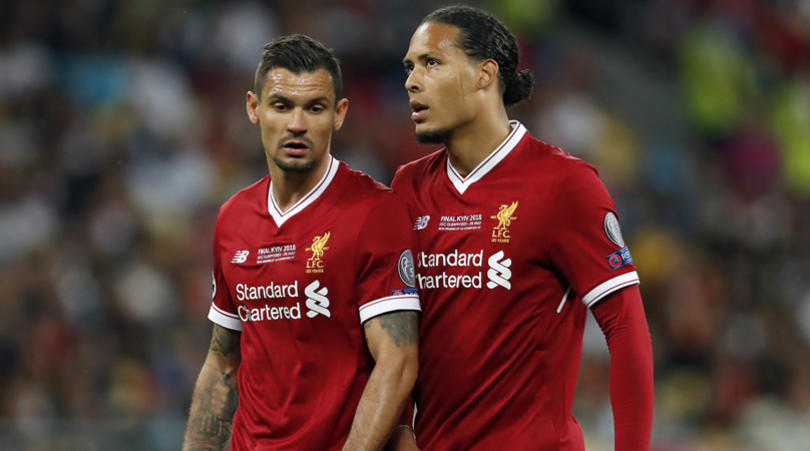What happened to Anthony Martial?
That thrilling goal on debut against Liverpool feels long ago now. On the fringes, out of favour and possibly on the move, the Frenchman is already a case of what could have been at Old Trafford, writes Richard Jolly
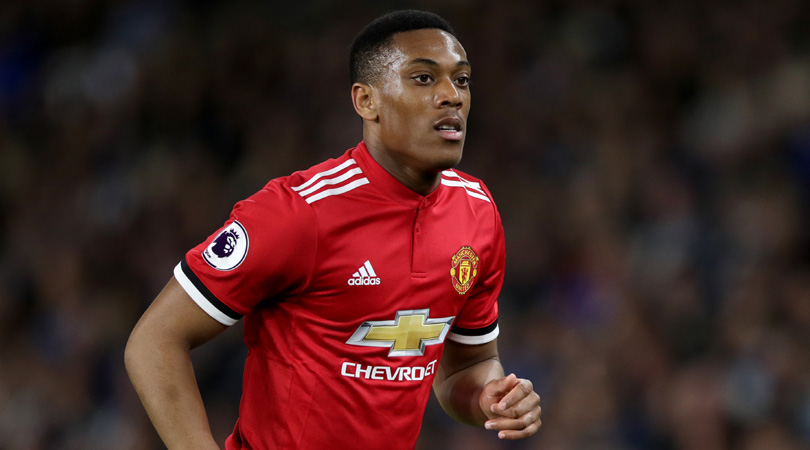
Few of the comparisons to Thierry Henry felt forced. The forward was young, French and extraordinarily quick. There was something seemingly effortless about his excellence; the acceleration, the ability to glide past defenders, the capacity to open up his body and find the far corner of the goal. “I loved the finish,” said France’s record scorer. “I call it ‘freezing the keeper’.”
Almost three years on, the mentions of Henry seemed still more compelling. This time, however, there was a difference between prodigies from the Parisian suburbs with Monaco and France on their CVs. Didier Deschamps, one in a position to know, suggested he was better than Henry at the same age.
The first paragraph is about Anthony Martial. The subject of the second is Kylian Mbappe.
Perhaps it’s unfair to judge anyone against Mbappe, the youngest player since Pele to score in the World Cup final. And yet three years ago, it was Martial who was the world’s costliest ever teenager.
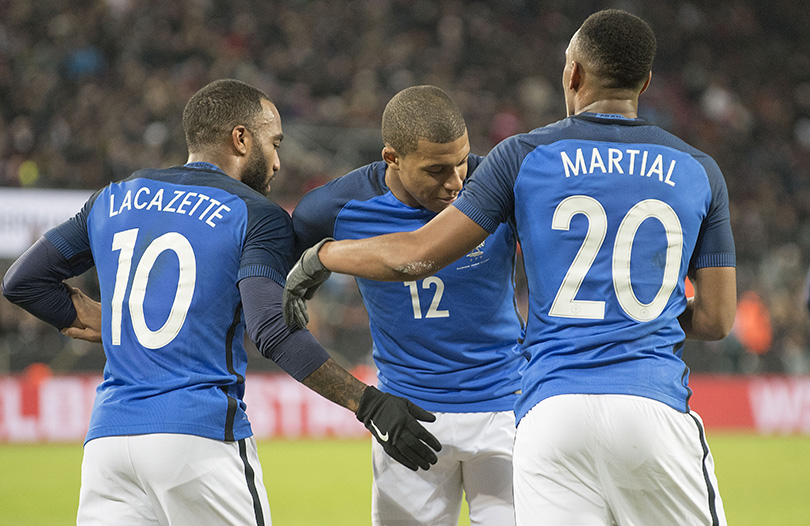
The path to greatness beckoned for him, especially after a Manchester United debut when he scored in sublime fashion, after 21 minutes and against Liverpool to earn Henry’s approval. It was the kind of auspicious bow to suggest Monaco were wise to include a clause securing them a further €10m if Martial were to go on and win the Ballon d’Or.
It underlines the extent to which Martial was Mbappe: in potential and in many an imagination, anyway.
It’s easy to ridicule the suggestion now, when Martial’s omission from France’s World Cup squad scarcely ranked as a surprise; when he has been overtaken not just by Mbappe but by Ousmane Dembele, Nabil Fekir and Thomas Lemar in the pecking order under Deschamps; when he has been sidelined by both a series of signings and the homegrown pair of Marcus Rashford and Jesse Lingard at Old Trafford; when he seems surplus to requirements and has even been deprived of the chance to make an impact on the pre-season tour of the United States by the birth of his second child.
Get FourFourTwo Newsletter
The best features, fun and footballing quizzes, straight to your inbox every week.
Life under Louis
Timing can be everything, and Martial’s – so impeccable on his United debut – has felt awful of late.
When he arrived at Old Trafford, he was both an anti-Louis van Gaal player, offering excitement and blistering attacking in a slow side configured to pass the ball sideways, and a footballer in keeping with the Dutchman’s ethos. As Patrick Kluivert can testify, Van Gaal, for all his many flaws, is willing to grant teenagers chances.
Martial came in a period of flux, joining after decline, during dullness, and yet when youth brought a promise of a brighter future. Now, with Memphis Depay and Adnan Januzaj in permanent exile, Luke Shaw understudying a 33-year-old converted winger and Martial apparently available for transfer, that particular future will never arrive.
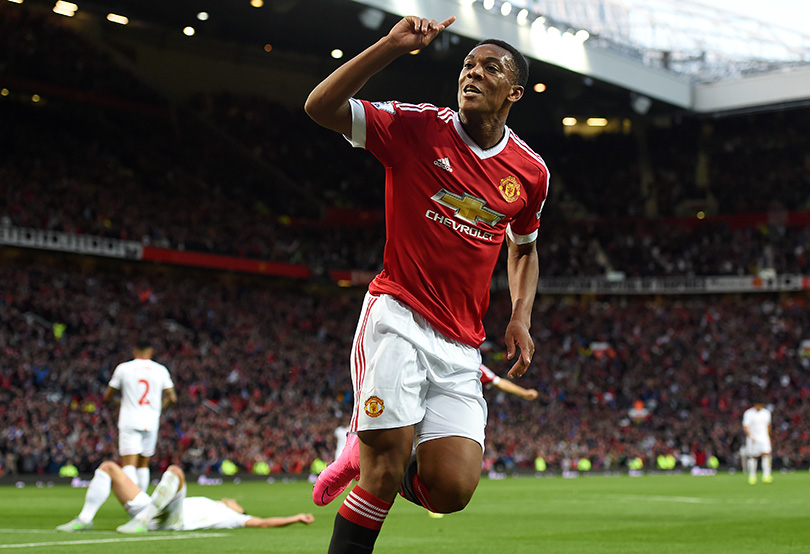
That Chelsea, Bayern Munich and Borussia Dortmund are apparently interested shows the scale of his talent. It indicates that others believe there is ability that United have left untapped; that they feel there is a bargain to be had. Perhaps the eventual verdict will be that Martial’s spell at Old Trafford is a longer and more initially uplifting version of Henry’s Juventus career, a blip in progress overshadowed by subsequent success elsewhere.
The wrong place
The temptation is to say that he is a victim of Jose Mourinho, a manager with a preference for senior professionals, defensive discipline and disciples. In the bigger picture, Martial may be a victim of circumstances; the right player at the wrong time.
Or maybe the wrong club. Scoring 17 goals represented a laudable effort in a Van Gaal team, given the paucity of attacking intent for much the Dutchman’s second season. Yet even had it been 27, he was still always going to be a stylistic misfit for Mourinho as a striker.
The Portuguese’s four archetypal centre-forwards – and in time, Romelu Lukaku could make it five – have been Didier Drogba, Diego Milito, Diego Costa and Zlatan Ibrahimovic: warriors who specialise in playing with their back to goal, not slick, elusive speedsters.
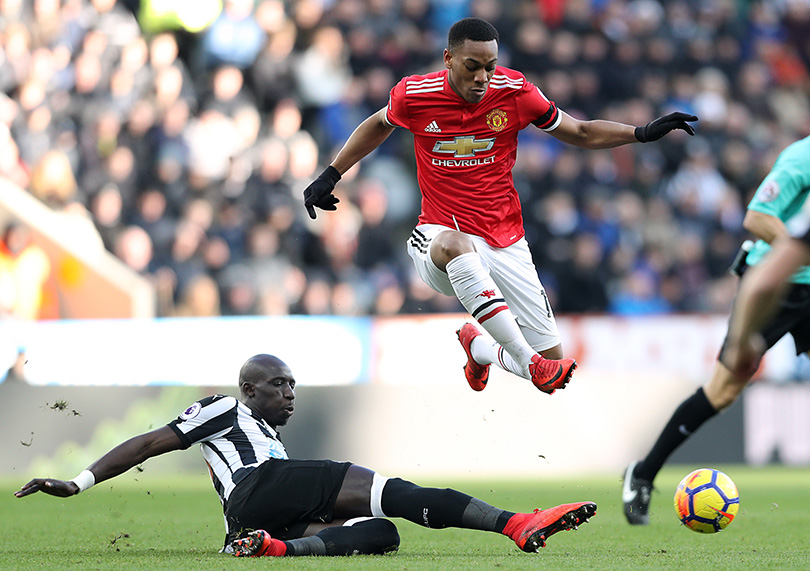
Factor in United’s short attention span, shopaholic tendencies and star-struck pursuit of the famous – Zlatan! Pogba! Lukaku! – and it was scarcely the environment for a futuristic project to flourish. Especially, perhaps, when another in Rashford emerged to complicate matters.
And yet, if it seemed an imperfect solution, Rashford and Martial’s job-share last season was highly productive. They had 20 goals between them before the end of January; even when fans jeered Mourinho’s decision to remove Rashford against Tottenham, his replacement, Martial, delivered the only goal.
The Frenchman was a specialist in immediate impacts. He looked the Premier League’s most potent substitute. Henry said his younger compatriot was better at 21 then he had been at the same age.
Another obstacle
Then Alexis Sanchez happened. The Chilean’s much-trumpeted move was a deal typical of the modern United, signing an older player in a bid to find a shortcut to success, delighting in recruiting a target of Pep Guardiola’s, using opportunism but not strategy.
The departed Henrikh Mkhitaryan, equally capable of playing in the centre or on the right, suited the profile that the squad needed. Martial, displaced from the striking role by targetmen, was demoted to third-choice left winger by Sanchez. A marginalised figure has not scored a United goal since. Perhaps he never will again.
After the most spectacular of starts, it could be an anticlimactic end. Martial’s story feels a parable about life at Old Trafford now: the big fee, the excitement with something bright and new before something newer comes along, the ultimate sense that things could, and should, have gone better.
The last five years at United have framed by a lingering sense of what might have been. Martial feels a case in point.
Richard Jolly also writes for the National, the Guardian, the Observer, the Straits Times, the Independent, Sporting Life, Football 365 and the Blizzard. He has written for the FourFourTwo website since 2018 and for the magazine in the 1990s and the 2020s, but not in between. He has covered 1500+ games and remembers a disturbing number of the 0-0 draws.
